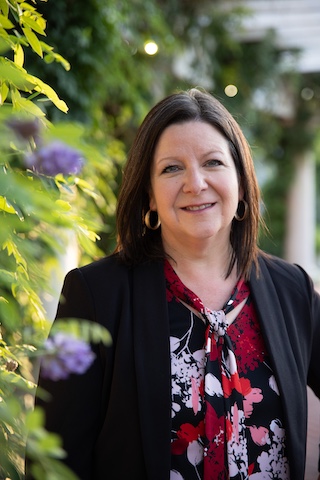 Written by Dr. Anessa Westbrook, volunteer with Iron Rose Sister Ministries in York, Nebraska
Written by Dr. Anessa Westbrook, volunteer with Iron Rose Sister Ministries in York, Nebraska
If you were asked to explain marquetry or pyrography, how would you begin? Likely, few of you even know what these crafts are, so you would probably begin by looking them up. Then, perhaps, you would try to learn a little about the process behind them. When it comes to mentoring, our familiarity with that word can give us a false sense of knowing what it is. It’s like hearing a word in another language and assuming that you know the meaning because it sounds familiar, but then later find out that the meaning is different. Often, we do not take the time needed to reflect on everything that mentoring entails.
Women are specifically told to mentor in Titus 2. Titus 2:3 lays out the personal preparation that must occur beforehand, saying, “Likewise, teach the older women to be reverent in the way they live, not to be slanderers or addicted to much wine, but to teach what is good” (NIV). Before someone begins mentoring, there is a preparation process that needs to take place. According to this passage, mentors need to be reverent, watch the way they talk about people, not be controlled by worldly actions, and be prepared to provide good teaching. These qualities take time to develop. What we see reflected in this verse is inner work that is both countercultural and requires the ability to stand one’s ground.
We should not underestimate the power of our influence as women. In Philippians 4:2-3, we see Euodia and Syntyche called out both as partners in the Gospel and with a plea for them to get along. They were obviously influential, but their disagreement was causing issues in the church at Philippi. Mentors should be worthy of imitation. Just as Paul called upon Christians to imitate him in Philippians 3:17, a mentor needs to realize the weightiness of her example. Unhealthy practices should be identified and removed from her life, as they could potentially be replicated in the life of her mentee.
Titus 2:4-5 outlines specific topics for mentors to cover. These topics are mainly domestic in nature, but they represented the everyday reality of women at this time. Paul wanted women to infuse their daily work with purpose and faith, so that they could represent Christianity and their faith well. Today’s mentors should take into account the daily work of their mentees, preparing them to reflect God in their work and personal lives.
Throughout Acts, women played important roles as the early church was being established. Right after the apostles watched Jesus ascend into heaven, they returned to the upper room in Jerusalem. Acts 1:14 says, “All these with one accord were devoting themselves to prayer, together with the women and Mary the mother of Jesus, and his brothers” (ESV). In this small community, women wrestled alongside the apostles with how to apply what they had learned from Jesus to their lives as a Christian community.
Throughout the book of Acts, we see women stepping up to use their gifts for Christ. We are introduced to Tabitha in Acts 9, who is described in verse 36 as “always doing good and helping the poor.” After she became ill and died, her absence was felt keenly by the widows whom she was caring for, and ultimately resulted in Peter raising her from the dead so she could continue her work. In Acts 16, we see the influential and connected Lydia and her household’s conversion and baptism. In verse 40, we find that Lydia went on to host Christians in her home. And in Acts 18, Priscilla, alongside of husband Aquilla, shares the good news of Jesus’ life and ministry to Apollos, who was boldly preaching about the coming of the Messiah. This transformed his message. These women used their influence in the circles God had given them, stepped up, and served God faithfully in those areas. Mentors should demonstrate this type of faithful service in their own circles, encouraging younger women to do the same.
Mentoring is not a suggestion or an option; it is what we are called to as women. We should approach our own preparation with intentionality, carefully considering the way we influence and mentor. As you reflect on mentoring, what are some growth areas that you can work on? What type of impact do you think you could make in the lives of other women after working in these areas?

